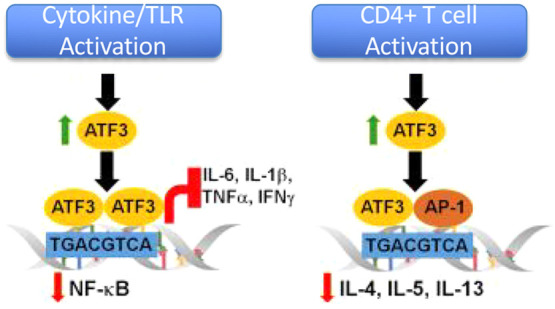Figure 1.

Overview of ATF3 activity in cancer. ATF3 plays an important role in host defense by regulating immune responses and cancer progression. In inactive immune cells, that include macrophages, natural killer cells, and CD4+ cells, it is expressed at low levels. Once these cells are activated by various signaling pathways including by TLRs (Toll-Like Receptors), cytokines, and antigen presentation, they become rapidly induced. ATF3 then binds to target promoters to regulate transcription. It appears to directly antagonize NF-kB and AP-1 driven promoters, resulting in reduced expression of certain cytokines. Controversially, ATF3 is also proposed to play a role as both a tumor suppressor and an oncogene. Figure adapted with permission from ref (7). Copyright Keai publishing 2017.
